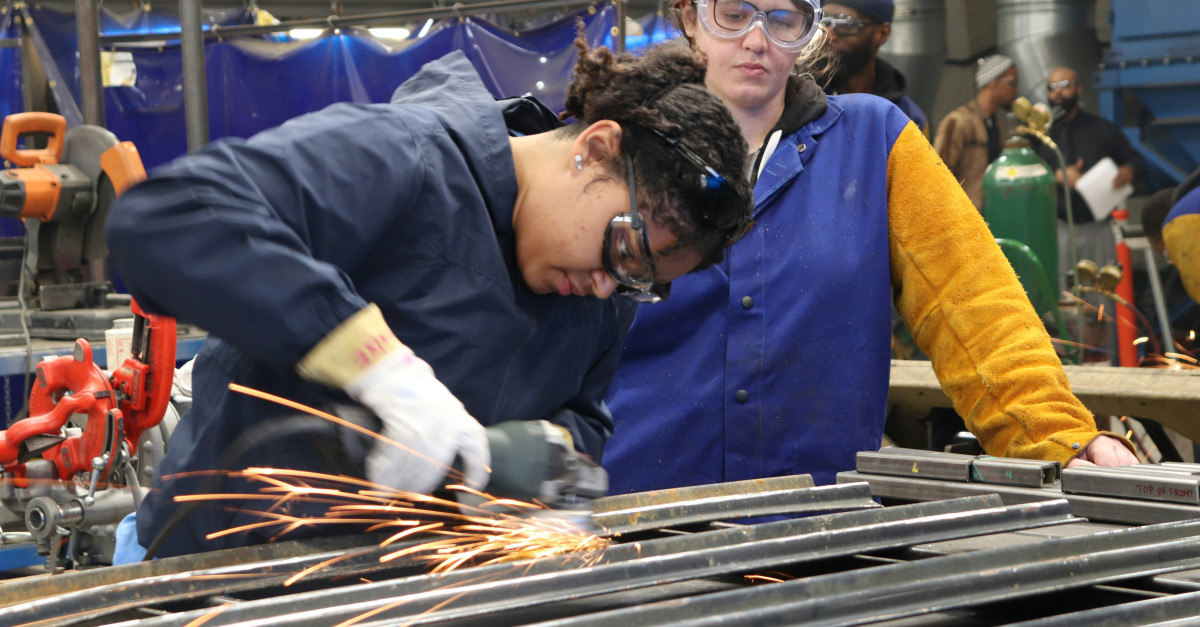If you’ve ever poured time, money, and energy into training young employees only to see them leave, underperform, or demand more than they give, you’re not alone. Many employers—especially small business owners or managers in high-turnover industries—reach a breaking point and think, “Never again”!
Fed Up With The Hassle
The temptation to avoid hiring anyone under 30 can feel like a practical decision rooted in experience. But acting on that frustration can lead you into dangerous legal waters—worse, it can cause you to overlook talented, dedicated young professionals who might be exactly what your business needs.
Why The Frustration Happens
Hiring younger workers often comes with challenges. Lack of workplace experience means more intensive onboarding, while some younger employees may treat jobs as temporary stepping stones. Employers may also experience generation gaps in communication or work expectations.
Taking A Hard Look At Hiring Practices
These difficulties are real, but they aren’t universal. Frustration usually builds when hiring and training practices don’t account for fit, expectations, or retention strategies. Rather than responding by excluding an entire age group, it's more productive—and legally safe—to improve how you hire and support early-career employees.
Age Discrimination And The Law
In the US, age discrimination is illegal under the Age Discrimination in Employment Act (ADEA), but here's the twist: ADEA protects employees over 40. This means that in strict legal terms, there are no federal protections against discriminating against younger workers—for example, declining to hire someone because they’re 22. But that doesn’t make it a good idea.
The Downside Risk
Some states and municipalities have their own broader anti-discrimination laws, and even if it’s technically legal, creating an age-based hiring policy can backfire in terms of workplace culture, reputation, and diversity. Plus, using age as a hiring filter—whether explicit or subtle—opens you up to scrutiny, bad publicity, and a weakened applicant pool.
The Hidden Costs Of Age Bias
If you swear off hiring anyone under 30, you may avoid a few short-term frustrations—but you’ll also limit your company’s potential for growth, innovation, and fresh perspectives. Younger employees bring benefits that are easy to overlook.
What Youth Can Bring To The Table
Moreso than their boomer colleagues, younger employes are known for their tech-savviness, adaptability, and current knowledge of emerging trends. Their willingness to learn and evolve brings more value in the form of long-term growth potential—if nurtured well. When employers invest in thoughtful onboarding, mentorship, and career development, younger workers can become loyal and highly valuable team members.
Better Alternatives To Age-Based Hiring
Instead of making hiring decisions based on age, focus on behavioral traits and values during recruitment. Ask about accountability, long-term goals, and prior experiences. Use situational and problem-solving interviews to evaluate maturity and critical thinking.
On-Boarding On A Trial Basis
Offer trial periods, internships, or project-based contracts before committing to full employment. You can also build structured mentorship programs, assign peer coaches, or implement clearer performance benchmarks to set young employees up for success without burning out senior staff. Recognize that the employee needs to see what they’re getting in return, though.
How to Channel Frustration Into Strategy
It’s okay to feel burned out after training employees who don’t stay long. But don’t let frustration make your business less inclusive, less competitive, or legally vulnerable. Reframe your hiring strategy to focus on attitude over age, and improve your employee retention practices. There are some key questions you can ask yourself in order to do this.
The Keys To Staff Retention
To give yourself the best shot to retain quality workers, ask yourself: Are we being clear about expectations from day one? Are we providing enough support for growth? Are we hiring for culture fit, not just skill? You might find that with the right approach, some of your best future employees are still under 30—but more prepared, committed, and capable than ever.
Don’t Close the Door On Youth—Fine Tune The Process
Frustration with employee turnover is real—but the answer isn’t to avoid hiring younger people altogether. Instead, adjust your recruitment, training, and retention strategies so you can better identify the right candidates, regardless of age. Aside from its questionable legality, age discrimination should never be a shortcut for judging talent or potential. Hiring based on mindset, work ethic, and adaptability—not birth year—leads to stronger teams and a more resilient business.
You May Also Like:
This Is The One Simple Change You Need To Make To Grow Your Business Fast
Customers Reveal The Annoying Things Companies Do That Instantly Turn Them Away












